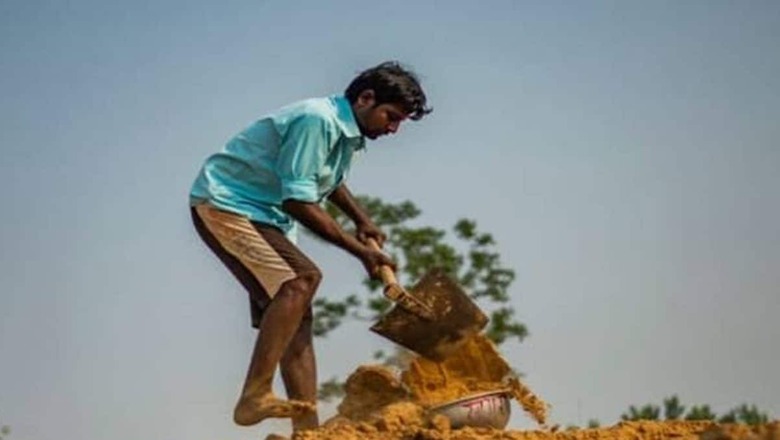
views
While the Ministry of Rural Development (MoRD) has extended the deadline for states to switch to Aadhaar-Based Payment System (ABPS) to August 31 for the flagship rural employment guarantee scheme, there’s a lag of at least 22% for all active workers. This means, a huge number of workers, especially in bigger states, are still left out and even this deadline may fall short to cover them all.
According to figures on the ministry’s website, 78.1% of all active workers under the Mahatma Gandhi National Rural Employment Guarantee Scheme (MGNREGS) are ABPS-eligible as of July 8.
Data shows while four north-eastern states, including Meghalaya (3.1%), Nagaland (21.2%), Assam (36.9%) and Arunachal Pradesh (58%) lag behind the most in coverage, these states have a lesser number of overall workers and it is the larger states like Uttar Pradesh (66.6%), Gujarat (67.6%), Bihar (74%) and Uttarakhand (74.7%) where even the 35%-25% remaining coverage translates into a huge number of workers.
At present, there are 14.38 crore active workers under MGNREGA, of which, 3.15 crore are yet to be covered under ABPS.
There has been no response so far from the ministry on News18’s query on ABPS coverage.
The deadline to switch to ABPS has been extended thrice since it was first made mandatory on January 30 for all MGNREGS payments starting February 1. It was extended for the first time to March 31, then to June 30 and now to August 31 on request of states asking for more time to switch to the new payment system.
The scheme guarantees 100 days of unskilled manual work to the adult members of a rural household in a financial year, who have registered under it.
Activists working closely with the scheme as well as workers have been protesting against making ABPS mandatory without covering all active workers under it. They have been claiming that a large number of workers registered under the scheme either do not hold Aadhaar-seeded accounts or have to go through a complicated process for getting the KYC done to make it Aadhaar-enabled, hence missing out on days of work.
According to the official website, the rate required per day for workers to be ABPS-enabled in order to cover all active workers is 1,750,280. The rate of enablement needs to increase to meet the deadline of August 31.
Some of the other bigger states that are still less than 80% covered include Madhya Pradesh (75.6%), Odisha (75.7%), Maharashtra (75.9%), Jharkhand (76.4%) and Jammu and Kashmir (70.4%).
The top five states in terms of ABPS coverage include — Andhra Pradesh (96.2%), Kerala (95.2%), Tamil Nadu (94.9), Telangana (91.3%) and Tripura (90.3%).
Nikhil Dey, founder of Mazdoor Kisan Shakti Sangathan, a group of social activists and economists working for the rights of MGNREGS workers for a long time, said, “Even a 3%-5% lag in coverage is huge when it comes to workers in larger states, who depend on the scheme to make a living. Hence, 22% of active workers, which means over 3 crore workers, is still a huge gap to be covered. This is because it’s a legal right under the scheme and once a system is made mandatory, each worker has to be covered before the scheme is implemented in totality.”


















Comments
0 comment